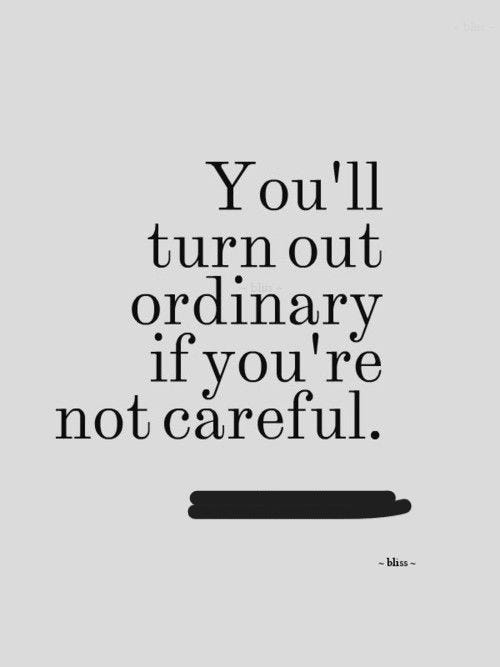Embracing Mediocrity: The Power of Accepting Our Average Standards
How culture is lowering what excellence really is
Hi! You are receiving this email because you subscribed to my previous newsletter, Loud and Clear.
The recommended articles the Google App throws at me are a mix of pop culture news -How long do we have to wait for the next Grey's Anatomy episode?- and trashy personal development articles -How to achieve greatness, starting today-. (Yes, some Royal drama is also in the mix).
I'm okay with the tv show updates and the royal gossip. What makes me cringe, though, are the articles that promise to give me the secret of success in two minutes.
I just opened one of those "life-changing pieces of information”. One of its first sentences is: "Achieving greatness is simply a matter of consistently going from point A to point B, every single day."
No, it's not. Don't lie, Anthony.
Here's a hard pill to swallow: We might excel in some -few- things and be terrible at others, but our main level or standard is average. Sometimes, we get mediocre results even by trying hard.
The New Standard of Failure
Our culture is idealistic in many ways. One of them is how society is fixed on believing each of us is destined to do something extraordinary. That greatness is the rule while being ordinary is punishment.
Writer Mark Manson explained it well when he said, "being average has become the new standard of failure. The worst thing you can be is in the middle of the pack, the middle of the bell curve".
Many believe life has no purpose if they don't excel at something. We all fear mediocrity, yet most of us have to live with it. It's practically universal.
If everyone were extraordinary, then no one would be extraordinary.
The Imperfection of the Human Being
Few things are exceptional. Here is one: The concept of mediocrity has retained its meaning for more than four centuries of continuous use. This deserves recognition in a world where language transforms as the ice melts into water.
The earliest known evidence of the word mediocre used as an adjective comes from a 1586 book titled The English Secretorie by the rhetorician Angel Day. It stated:
"Mediocre, meane betwixt high and low, vehement and slender, too much and too little as we saye…."
Later, when John Locke first wrote about mediocrity in 1677, he considered it an inherent characteristic of the human condition—declaring that human beings are naturally characterized by imperfection, finitude, and uneasiness. A state "equally far from the extremes of certain knowledge and total ignorance."
For Locke, accepting our mediocrity means to content ourselves with the measure God has assigned to our natural faculties without desiring what goes beyond our intellectual capacities and wasting our time leisurely.
"I have often thought that our state here in this world is a state of mediocrity, which is not capable of extremes, though on one side there may be great excellency and perfection; that we are not capable of continual rest, nor continual exercise, though the latter has certainly much more of excellence in it. We are not able to labor always with the body, nor always with the mind, and to come to our present purpose, we are not capable of living altogether exactly by a rule, not altogether without it – not always retired, not always in company".
The concept of mediocrity has haunted human beings for too long. As a result, our human condition is becoming almost a curse.
Set Excellence for What It Is
I have been hesitant to post my articles online for fear of; you guessed it, mediocrity. But not long ago, it was clear to me that the improvement process is much faster by sharing them and paying attention to feedback.
When our results aren't what we expect them to be, we can either feel helpless while convincing ourselves we don't have what it takes or take that as one step further into progress.
If we lower our ego and accept being average, we will be in an open state of mind, perfect for learning and improving.
We need to be aware of our idealistic culture while having a mindset for excellence, so we reach high. We also need to learn from John Locke and be mindful of intermediate as our default state, which is okay.
The danger is surrounding ourselves with content that sets excellence as the standard while, as a result, lowering what excellence is.




